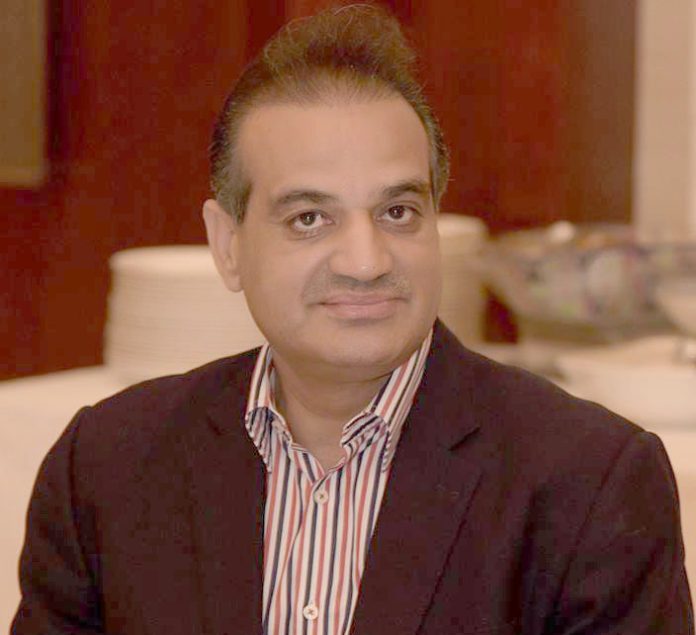The real concern lies in whether a government formed through maneuvering and gerrymandering can truly address the wounds afflicting our nation and breathe life into our nearly moribund economy. Unfortunately, the answer appears to be a resounding “no.”
Comment
Ansar M Bhatti
The Election Commission of Pakistan (ECP) has made a significant announcement, confirming that the general elections are slated to take place in the final week of January 2024. This announcement has triggered discussions among legal experts, as it appears to deviate from the Constitutional mandate requiring elections to be held within 90 days following the dissolution of the assemblies. Legal experts are raising concerns about the absence of a legal framework supporting this decision by the ECP. Many argue that such a move necessitates a clear legal basis.
In response to this development, the Pakistan Tehreek-e-Insaf (PTI) has taken a proactive stance, indicating their intent to bring the matter before the apex court. Meanwhile, other political parties, most notably the Pakistan People’s Party (PPP), which has consistently advocated for elections to be held within the constitutionally mandated 90-day window, are expected to unveil their strategies and future courses of action in the coming days. The political landscape in Pakistan is heating up as various parties grapple with the implications of this decision, setting the stage for what promises to be an eventful election season in early 2024.
In addition to the ordinary citizens of Pakistan, international actors have also expressed a strong desire for early, free, and fair elections in the country. Diplomats from prominent nations, including the USA, UK, Australia, UAE, and Saudi Arabia, have engaged in discussions not only with the Election Commission of Pakistan (ECP) but also with leaders from a diverse array of political parties. Against this backdrop, it becomes apparent that the ECP’s announcement may have been influenced by a combination of external and internal pressures, undoubtedly with the explicit consent of influential stakeholders.
Concerning the issue of whether all political parties enjoy an equal and fair playing field, it is evident that this is not the current reality. This is particularly apparent at this juncture, as the Chairman of PTI is incarcerated, and a relentless crackdown on PTI members and supporters persists without respite. If the PTI, which seemingly boasts significant public support, is not granted a fair and equal opportunity to participate in the election, it could cast doubt on the authenticity of the entire electoral process.
The PML-N, which aspires to lead the country, has been working diligently to foster unity within the party through increased inter-party communications. One of the paramount challenges facing the party is the secure and swift return of Nawaz Sharif. He is arguably the only leader who possesses the capability to aid the PML-N in its quest to rekindle its former prestige and support base. However, the recent Supreme Court ruling, which nullified the NAB amendments passed during the PDM government’s tenure, has exacerbated the challenges facing Nawaz Sharif.
In a surprising turn of events, Nawaz Sharif has called upon Shehbaz Sharif and Maryam Nawaz to convene in London for a series of discussions concerning the ever-evolving political landscape. Naturally, this move has left the PML-N leadership somewhat apprehensive, particularly in light of the potential reopening of NAB cases. Should the caretaker government choose not to file a review petition, it would imply that the powers-that-be are in alignment with the verdict of the apex court.
Just a few days ago, Nawaz Sharif confidently asserted that the PML-N is poised to assume power in the upcoming government. In fact, he went a step further by expressing his party’s intent to hold certain individuals accountable, including former army chief General Bajwa, former ISI Chief Faiz Hameed, and the next Chief Justice of Pakistan, Justice Ijazul Ahsan, whom he accused of ‘patronizing’ anti-PML-N factions. It’s worth noting that this particular assertion might have raised eyebrows within the ranks of the Establishment.
Even in my previous analysis, I emphasized the inherent challenge of Nawaz Sharif and the Establishment coexisting peacefully. It is undeniable that the Establishment wields significant influence within Pakistani politics, actively contributing to the shaping of political landscapes. Political parties readily acknowledge this influence when they find themselves in the opposition, but once in power, they often seem to disregard this crucial factor. This shift in perspective is where the real issue arises, potentially explaining why no prime minister has managed to complete a full term to date.
If the elections proceed under the current circumstances, it seems highly likely that no single party will be able to secure an outright majority. In this scenario, the PML N appears to be in a favorable position to secure a significant number of seats, particularly given the prevailing political landscape that seeks to exclude the PTI from the equation.
A plausible outcome could be the formation of a coalition government involving the PML N, the recently established Pakistan Istehkam Party, along with several smaller parties and independent candidates. Collaborating with the PPP would likely be the PML N’s least preferred option, serving as a last resort.
However, the real concern lies in whether a government formed through maneuvering and gerrymandering can truly address the wounds afflicting our nation and breathe life into our nearly moribund economy. Unfortunately, the answer appears to be a resounding “no.” So, what lies ahead? Are we destined to witness yet another cycle of a short-lived prime minister and a government that withers prematurely?

















